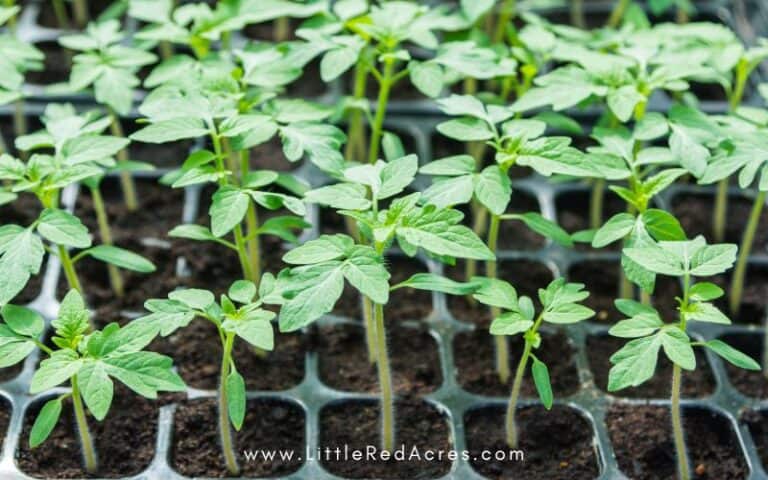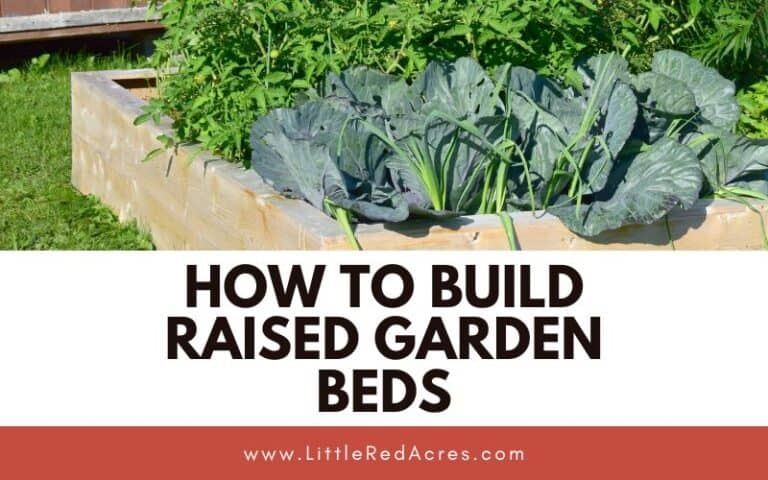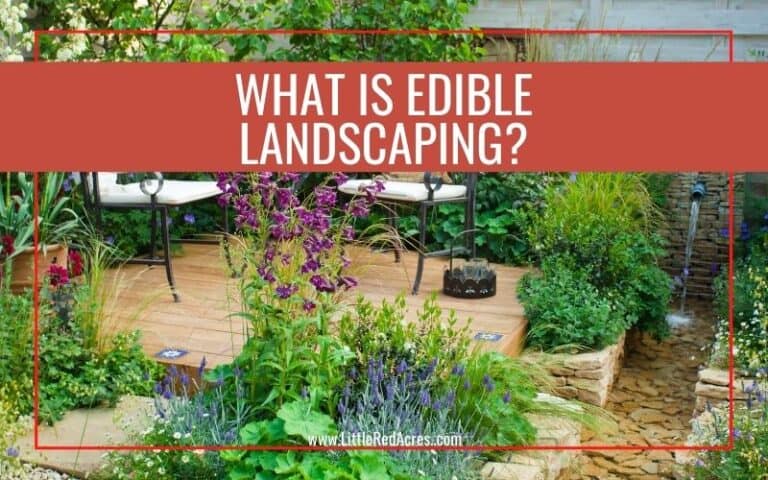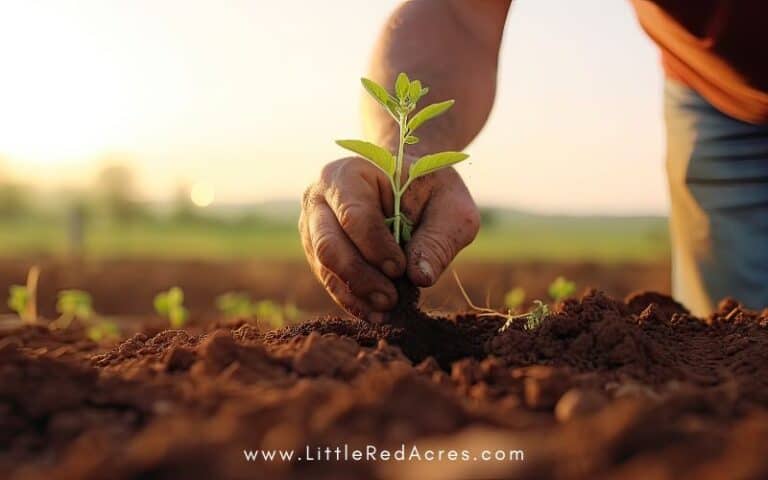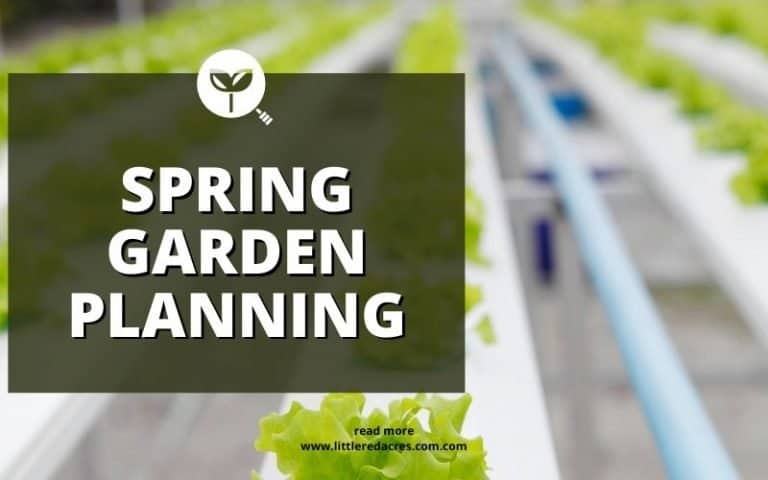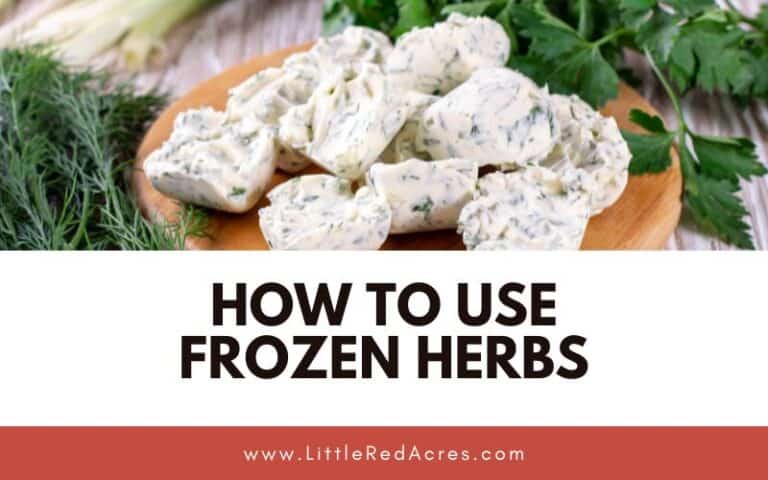Tips For Starting An Organic Garden
Are you thinking of starting an organic garden? If so, you're in luck! There are plenty of tips and tricks that can help make the process a lot easier. We'll cover some of the basics to get you started. So read on for all the info you need to get your garden growing organically!
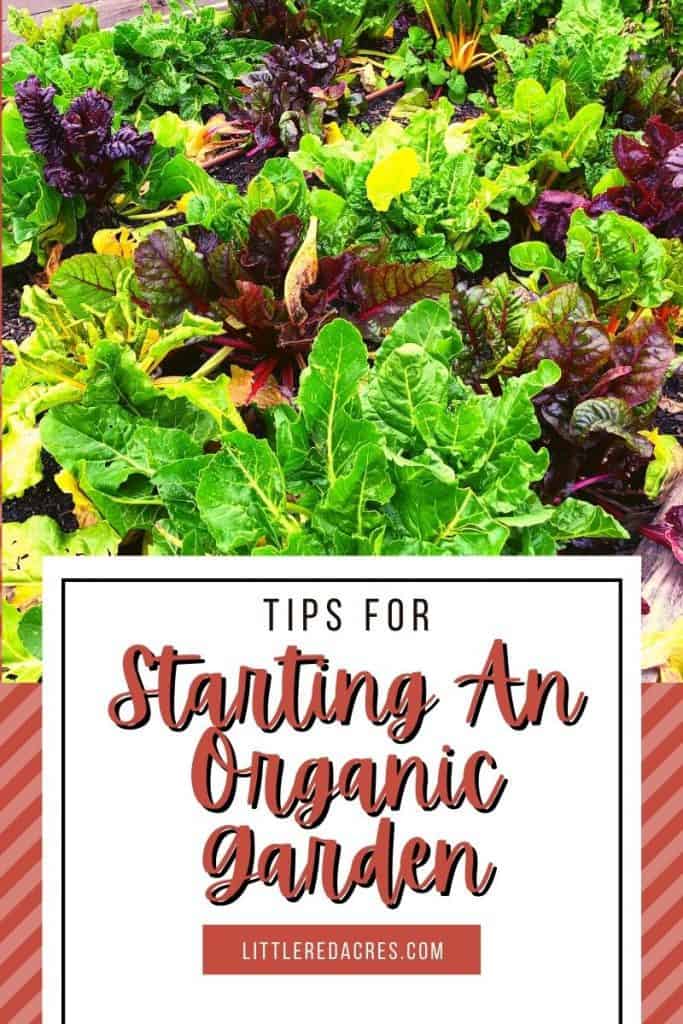
This post may contain affiliate links, see my disclosure policy for more information.
Tips For Starting An Organic Garden
One of the main reasons most people start organic gardening is so they can control what they are eating. Another reason is that organic produce can be very expensive to purchase at stores! We want to provide a healthier lifestyle for our families, but many of us live on a budget.
In order to accomplish both, we start our own organic garden. Maybe you have questions: but how do I get started? What tools do I need? Does it really save me money?
Get updates & freebies delivered to your inbox!
Where To Plant A Garden?
The first step to starting and maintaining an organic garden is figuring out where you are going to put it. Make sure to choose a location that will receive adequate sunlight but also provide the right amount of shade for the plants you are going to grow.
If you are growing kale, collards, or other leafy greens you are going to want a little more shade. These plants need only about 3 hours of sunlight per day.
Choosing your location is paramount to the success of your new organic garden.
Other things you want to look out for are large trees and bushes as these will steal the nutrients from your garden. Ensure that you place your garden near a water source so you don't have to run long unsightly hoses all over the place.
Container Organic Gardening
If you have limited space you can still show off your green thumb with container gardening. Make sure you pick a place where the plants will thrive.
Tomatoes do well on porches and balconies using the railings as support. One thing to consider is to protect your containers from adverse elements such as wind. The wind can and will knock over your containers and can create a mess for you and your neighbors.
Even with a lot of room to grow, container gardening can help to extend your growing season as you can winter sow some plants like lettuce and onions.
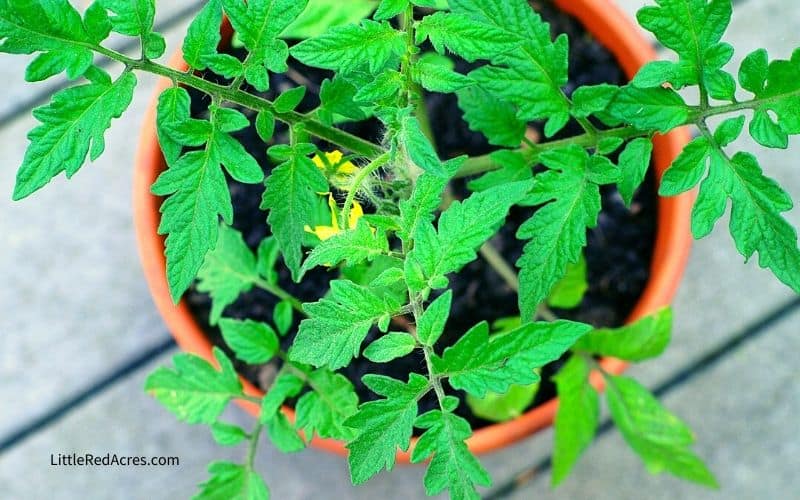
Start with Great Soil
Start with great soil and you will have great veggies. Rich well-draining soil helps your plants produce strong root systems. You want soil that is full of nutrients and minerals and has the right ph balance to promote the healthiest of plants.
You can buy soil testing kits online or from your local greenhouse. These kits test the ph, nitrogen, phosphorus, and potash content of the soil you are using allowing you to know what you need to do to make the soil perfect for your new garden plants.
If you have chickens, quail, or other animals, set up compost for their waste and your own kitchen waste. This will make great fertilizer for your garden.
Remember chicken waste is hot compost and should sit for a year or so before you use it in your garden or you could kill your plants.
Plants to Start Organic Gardening With
The easiest and most hearty plants to begin your garden in my opinion are tomatoes. Tomato plants are very hearty and produce tomatoes throughout the growing season. Make sure you have the right soil and give them plenty of sunlight and water and you will be feasting on juicy tomatoes in no time. They are perfect for container gardening as well as planting in the ground.
I also start a small herb garden that can be placed on the window sill kitchen. Fresh herbs are wonderful to grow and will add a robust flavor to all of your dishes. You can’t buy this kind of freshness. And you can dehydrate them for late use.
Zucchini is a great squash to begin your organic garden. It grows very big leaves and gorgeous flowers that look amazing. The flowers can be eaten as well. There are endless uses for this abundant squash.
Snow peas and sugar snap peas will need some support but you will be well rewarded. They grow fairly easily and need little tending. You will love picking these for a dinner salad or as a side dish with chicken. Or as I prefer, fresh from the vine while hiding from my kids.
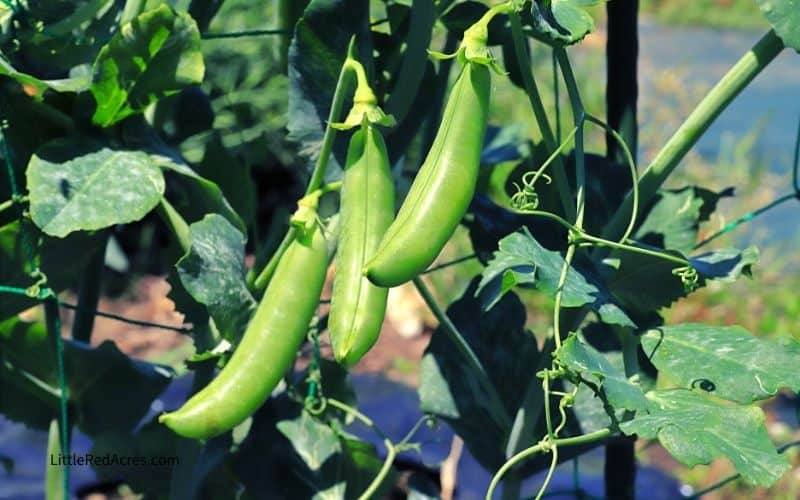
What Tools do I Need to Start an Organic Garden?
Some tools you will need to be successful are:
- a set of clippers, these are used for pruning and harvesting some of your vegetables
- a trowel, used for digging holes and making furrows for planting seeds
- a soil test kit as mentioned before to make sure you are starting with the best soil
- garden gloves, to keep your hands clean – optional!
- a watering can you have to provide water to your plants for them to grow
Does gardening really save money?
Yes, gardening can save money. Learning how to grow your own produce organically will help you to save on trips to the grocery store and curb some of the costs of buying organically grown produce.
The prices of organically grown produce have skyrocketed and made it almost impossible to buy and remain on a budget. I know in my town the organic section is almost twice the cost of the other stuff.
Get started today and you will love the results in just a few months you will have fresh tomatoes in every meal. You can learn to make your own spaghetti sauce and marinara. Homemade tomato soup is one of my favorite comfort foods.
Learning to grow your own food and being able to give your family the freshest, healthiest organic produce is just one reason to start your garden. Sharing time with the kids and teaching them how to grow their own food is rewarding also. Gardening can be a rewarding experience and something you can share with your children.

When to Start Seeds Indoors for Spring Planting
Reusing Household Items for Starting Seeds Inside

